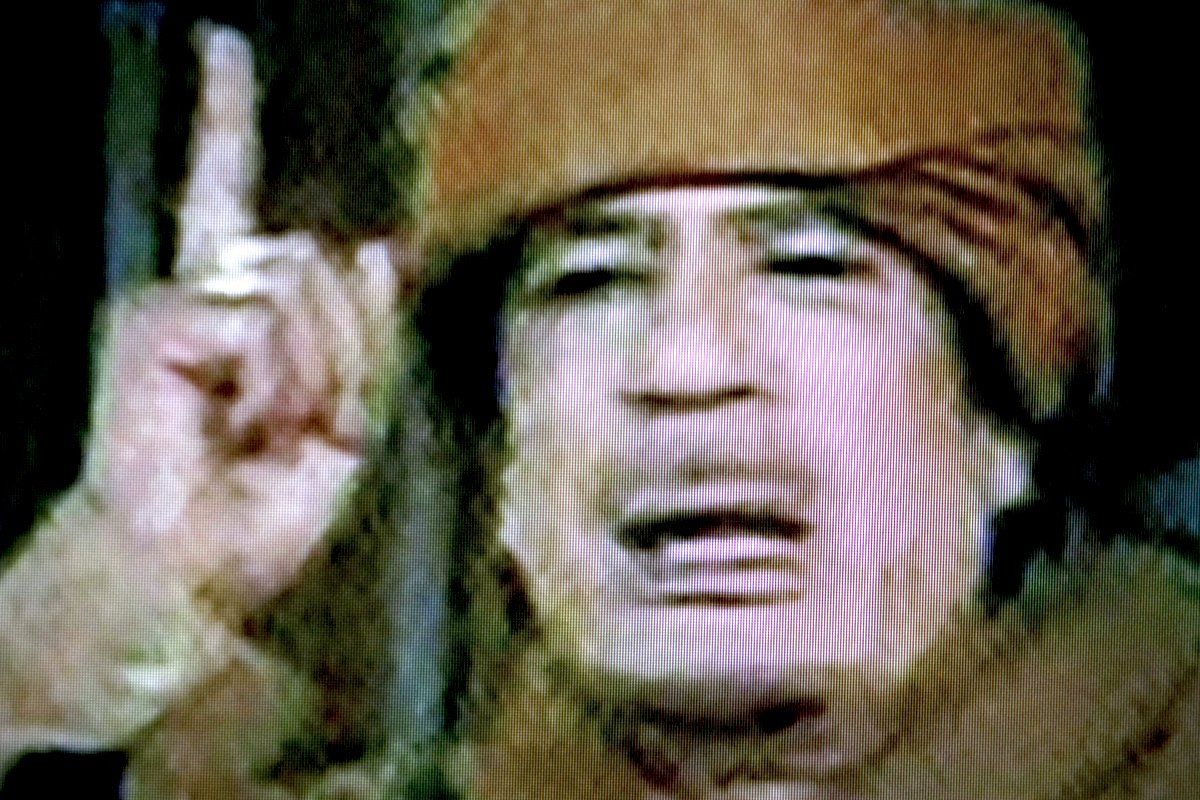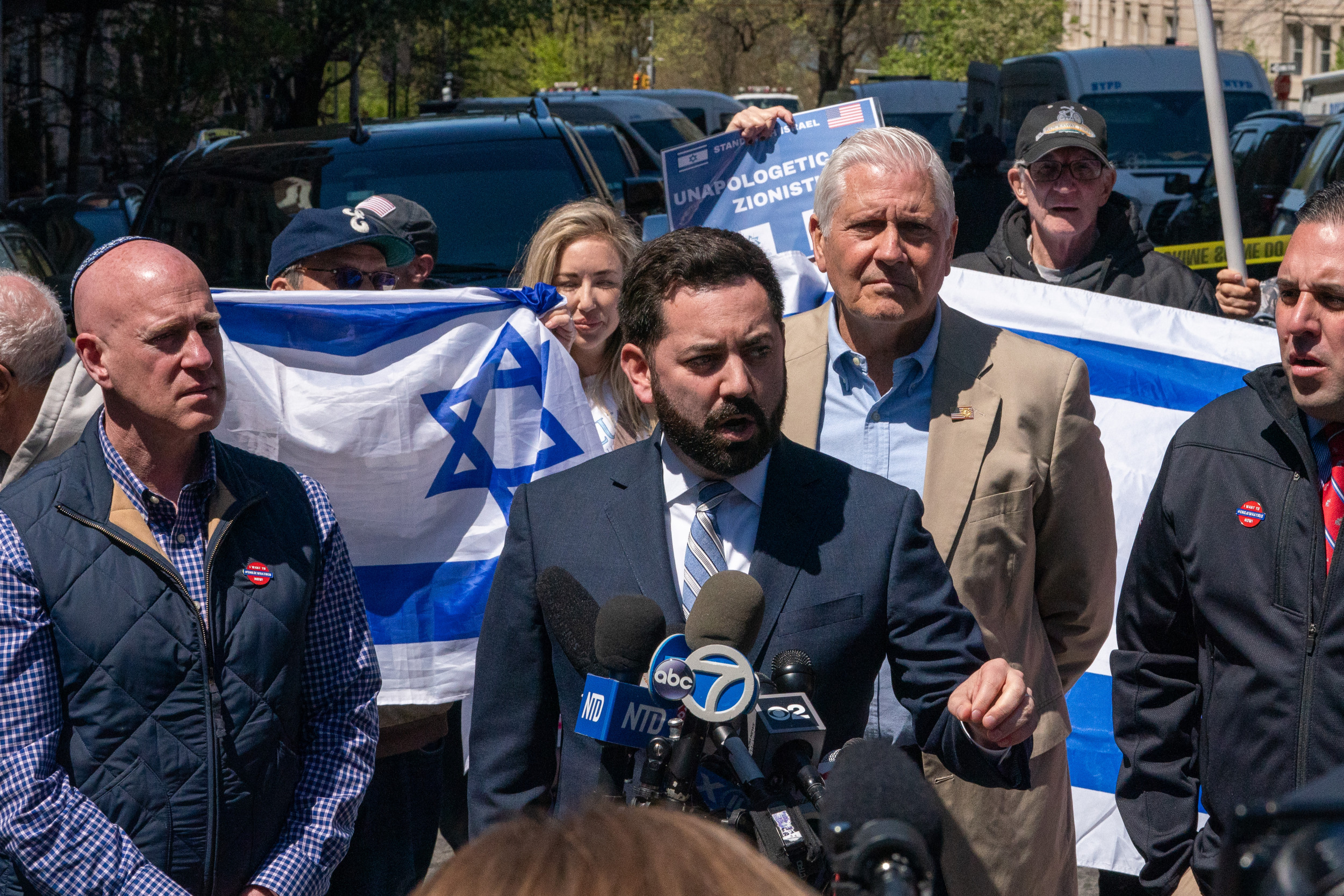
Zakia Saltani has been warned not to talk to the press. She doesn't care. She has waited 13 years to tell her story, and the Libyan government's threats can't stop her now. "After what happened to my family, what more can they do?" she asks. "I am beyond fear."
At her friend's house in Benghazi, with the red-black-and-green flag of the anti-Gaddafi rebellion spread proudly across her shoulders, she shows a framed photograph of her son, Ashur. He died of AIDS-related complications in May 2005, when he was 8. He had been one of more than 400 Libyan children who were admitted to the Al Fateh pediatric hospital in Benghazi 13 years ago with routine complaints like colds and earaches. They left with HIV. Like Ashur, roughly 60 have since died. Others are hanging on.
Until the Feb. 20 liberation of Benghazi by anti-Gaddafi protesters, the regime was able to bully people like Saltani into silence. Meanwhile, the government blamed the outbreak on five Bulgarian nurses and a Palestinian doctor at the hospital, falsely accusing them of deliberately infecting their young patients, and sentencing them to death. The medics were finally released in 2007, but not before the regime had extorted an Eastern European debt-forgiveness package and roughly three quarters of a billion dollars in supposed compensation and health-care assistance, together with a civilian nuclear-development deal and a "very good military accord" (in the words of Gaddafi's British-educated son Saif al-Islam) with the French government "and other confidential stuff we shouldn't discuss on the record," the smiling Saif told NEWSWEEK at the time.
Now Saltani and other ordinary Libyans are starting to speak out at last. She says this is the first interview she has ever given—and her anger against Muammar Gaddafi and his 41-year dictatorship begins to spill out. "On Feb. 2, 1998, we went to the hospital because Ashur had a fever and a cough," she says. "He was 4 months old, and we stayed two days. We went back two weeks later for the same problems." Shortly afterward she took her 5-year-old daughter, Mouna, to the same hospital with a high fever. Mouna also went home with HIV, although at the time Saltani had no way of knowing that either child had become infected.
The truth began to emerge a few months later. "In October we learned that the doctors were hiding something," Saltani recalls. "They said there was something in his blood that they couldn't identify. The head of the hospital told us not to say anything. When we found out it was HIV, the government told us the infection originated from outside Libya, and that it only affected 10 kids. Another doctor even tried to convince us that it wasn't HIV, but tuberculosis." When the families finally discovered just how many children had been infected, the regime sent many of the patients to Italy for analysis and treatment.
Foreign medics made useful scapegoats—and lucrative hostages.
Even then the regime still did its best to cover up the outbreak. Mohammed El Agili, 20, says he was 8 when his parents took him to Al Fateh for an eye operation in March 1998. Three days later he returned, still dizzy from the procedure. When rumors of AIDS swept through the city, he underwent HIV testing, along with all the other children who had been admitted to the hospital in early 1998. The result came back positive. "When I found out, I ran shouting through the streets like a lunatic," says his father, Mahmoud. "And we made sure the government heard our cries. Gaddafi invited all the families to a tent in the desert outside Sert, saying he would give us whatever we wanted, but we had to keep quiet. 'We don't want foreigners to become involved in this,' Gaddafi told us. 'We don't want this to get out of Libya.' He warned us that our relatives outside Libya would be in danger if we talked. We were afraid. We had to keep quiet."
The news blackout may have suited Gaddafi's purposes, but it didn't help young Mohammed deal with insensitive classmates. They bullied him until he finally gave up school at 12. A rabid fan of the Real Madrid football team, he now helps his brother run a mobile-phone shop near their house. Asked about his future, the HIV patient smiles at the question's naivete. "My generation doesn't think about the future," he says. "Even without this disease, Gaddafi has destroyed all our futures."
Although the cause of the outbreak remains a mystery, outside studies implicate poor hygiene at the hospital rather than any of the conspiracy theories that abound in Libya. According to a 2002 report by Italian medical investigators, all the infected children had received intravenous fluids, antibiotics, steroids, or bronchodilators, but no blood or blood products. Saltani says she found it hard to accept the regime's allegations against the hospital's foreign medical workers. "At first I didn't believe it was them," she says. "The Palestinian doctor and the Bulgarians had always taken good care of the children, but everyone was blaming them, so we believed it. We wanted to confront them face to face, but the government wouldn't let us."
Still, the foreign medics made useful scapegoats—and lucrative hostages. The ransom Gaddafi received for freeing them enabled him to pay the victims' families roughly $1 million each, helping him to buy a little more silence. For 41 years he has controlled the country through a combination of violence, intimidation, and strategic payoffs. To test the regime's limits on free speech was to risk imprisonment, torture, and death. And old habits persist, even in liberated Benghazi, where anti-Gaddafi rallies occur daily. The current director of Al Fateh Hospital, who was working there as a doctor when the infections took place, refuses to speak as long as Gaddafi holds sway in Tripoli.
Just before Saltani's interview, her phone rings. The caller is Ibrahim El Oraibi, the representative who deals with the regime on behalf of the HIV families. She puts it on speakerphone so a reporter can hear. He screams at Saltani for violating the government's gag order. "If Tripoli finds out, they will get angry and will stop sending AIDS medication to Benghazi!" Oraibi shouts. That could be a death sentence for Saltani: she herself contracted HIV from breast-feeding Ashur. Doctors say it's a thing that happens only rarely, but it can happen. She has been taking antiretroviral drugs for a year, and has only two months' supply left.
But she refuses to back down. "I don't believe anything Gaddafi says anymore," Saltani tells Oraibi. "I have been quiet for 13 years and I'm tired of it. I want to fight." The intermediary pleads: "Don't talk until we receive the medicine." Saltani is unmoved. "Gaddafi needs to go—and you can go with him," she says. "I've been waiting 13 years and I'm not going to wait any longer. He's a liar, and I'm going to talk with whomever I wish."
She hangs up on the caller and begins her interview.
Elkin is a freelance journalist who has been covering recent uprisings in the Mideast.
Uncommon Knowledge
Newsweek is committed to challenging conventional wisdom and finding connections in the search for common ground.
Newsweek is committed to challenging conventional wisdom and finding connections in the search for common ground.
About the writer
To read how Newsweek uses AI as a newsroom tool, Click here.








